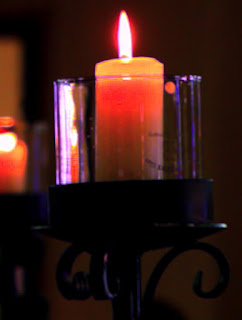Wicca (a term which comes from the old English word for "witch") is not devil worship and is not inherently evil: in fact, the Wiccan Rede, which is the most serious commandment of those practicing magick, is summed up in only a few words: "Do what thou will, but harm none." By learning more about this complex religion (whether you agree with it or not), you will understand that it is not bad or evil. And as always, when you learn the truth about something, you can then decide what to think for yourself.
Not all spell practitioners are Wiccan, and not all Wicca believers use spells (though many of them do). There are spiritual workings in many world religions, including more mainstream beliefs such as Christianity (all types), Judaism, Islam, Hindu, and Buddhist. Wiccan "magick" is often spelled with a "k" to differentiate between spiritual work versus performance magic, which has nothing to do with spirituality. At their most basic form, spells are simply another form of prayer. These practices, like prayer, are used to request assistance in changing the outcome of a situation, to bring spiritual guidance and help. Calling on a higher power in order to create a desired outcome, as well as to connect with our own divine presence (the God and Goddess inside all of us), are the purposes of spellwork.
Spells are not performed for anyone unless they ask for it and/or give their permission. Love spells, curses, and other spells which directly affect other people are considered to be underhanded and dishonest. If it goes against another person's free will, it is an abuse of power, and should not be done. Any spell which is used to manipulate or control someone else is forbidden under the Wiccan Rede, which explicitly says to "harm none." There is also the Threefold Law to take into consideration, which simply states that any action that is taken which affects others will come back threefold, be it for good or bad. Therefore, people who practice Wicca believe that not only is manipulating through spells (as well as treating other badly in general) going to come back and bite you where it counts, it's also forbidden to hurt others because it just isn't nice. Plainly stated, Wiccans generally consider themselves to be "good witches," not bad ones.
 Spells which are meant to bring out abundance and positive changes are said to have more power when done during waxing phases of the moon. These are the types of spells which are cast for better luck, fertility, and protection. Casting when your mood is positive is imperative. If you're feeling negative or unsure of your abilities, it may affect your spellwork.
Spells which are meant to bring out abundance and positive changes are said to have more power when done during waxing phases of the moon. These are the types of spells which are cast for better luck, fertility, and protection. Casting when your mood is positive is imperative. If you're feeling negative or unsure of your abilities, it may affect your spellwork.Banishing spells -- those are often spells which are used to get rid of something, such as bad luck or other unwanted elements in your life, are best done during the moon's waning phases. Again, a confident, positive approach is always best.
Purification is often done with the lighting of incense, the sprinkling of water, and the casting of salt -- these actions are found in cultures throughout the world, including other religions. Have you ever sprinkled salt over your shoulder? Used incense or holy water in church? These are not coincidences; items such as these are renowned the world over for their transformative properties.
Most people purify their spaces before committing any type of spiritual work or spell in order to keep the space and their work happy and benevolent.



